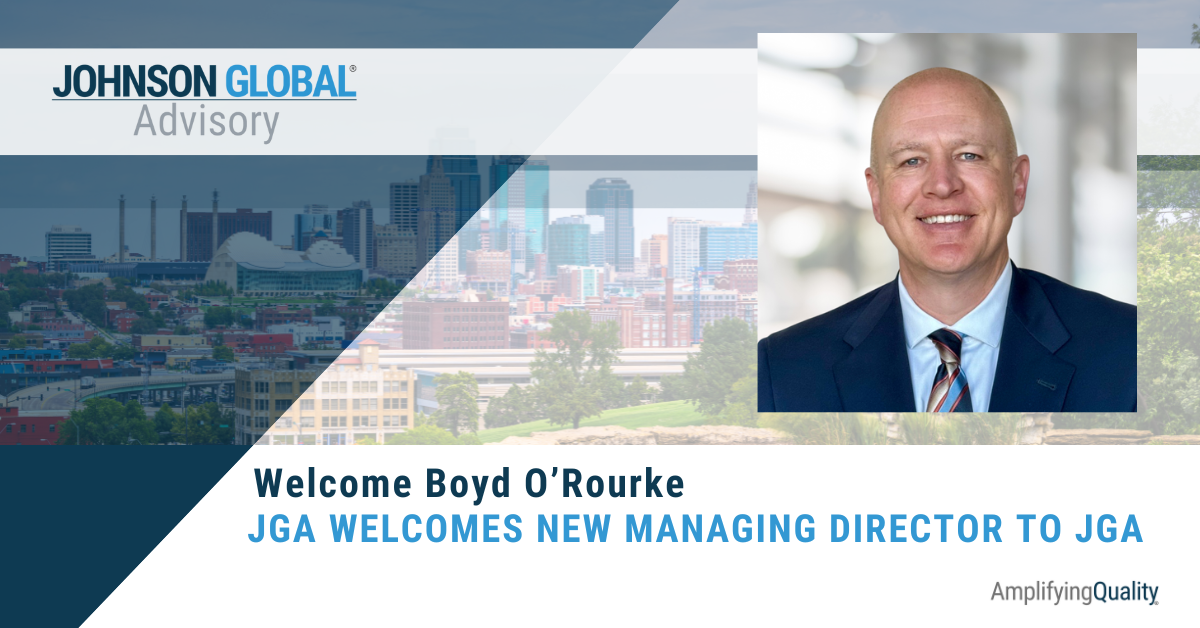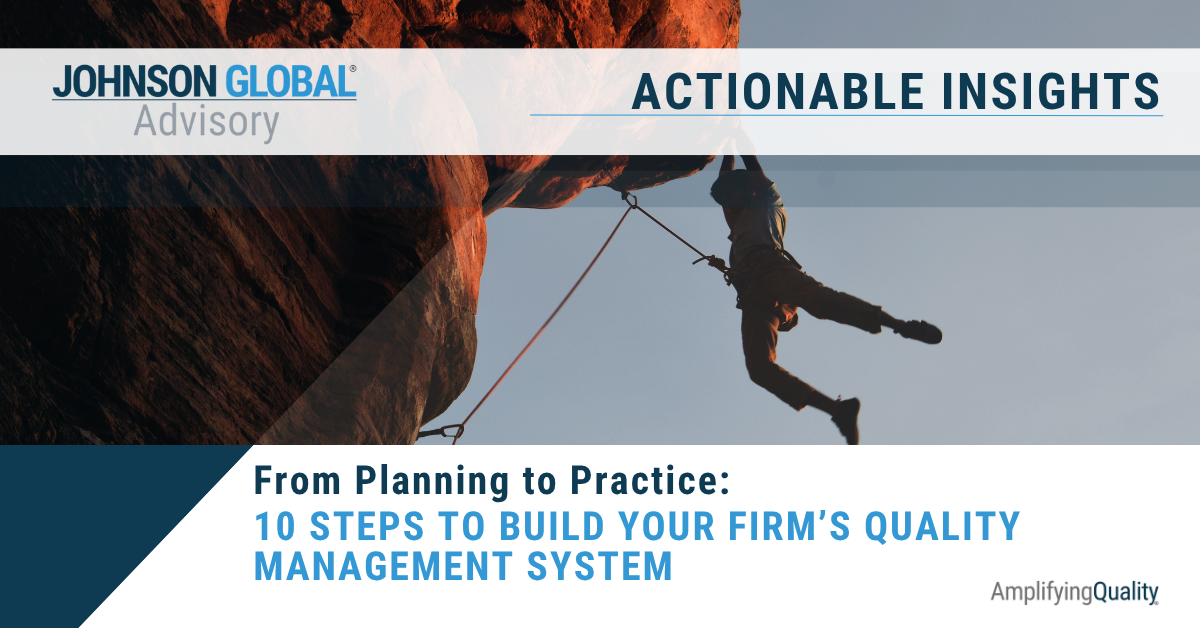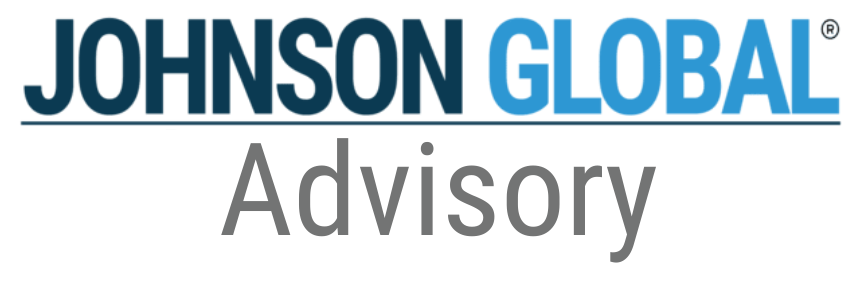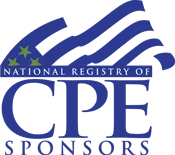Attention Auditors… Are you Prepared for Questions from your Client’s Audit Committee?
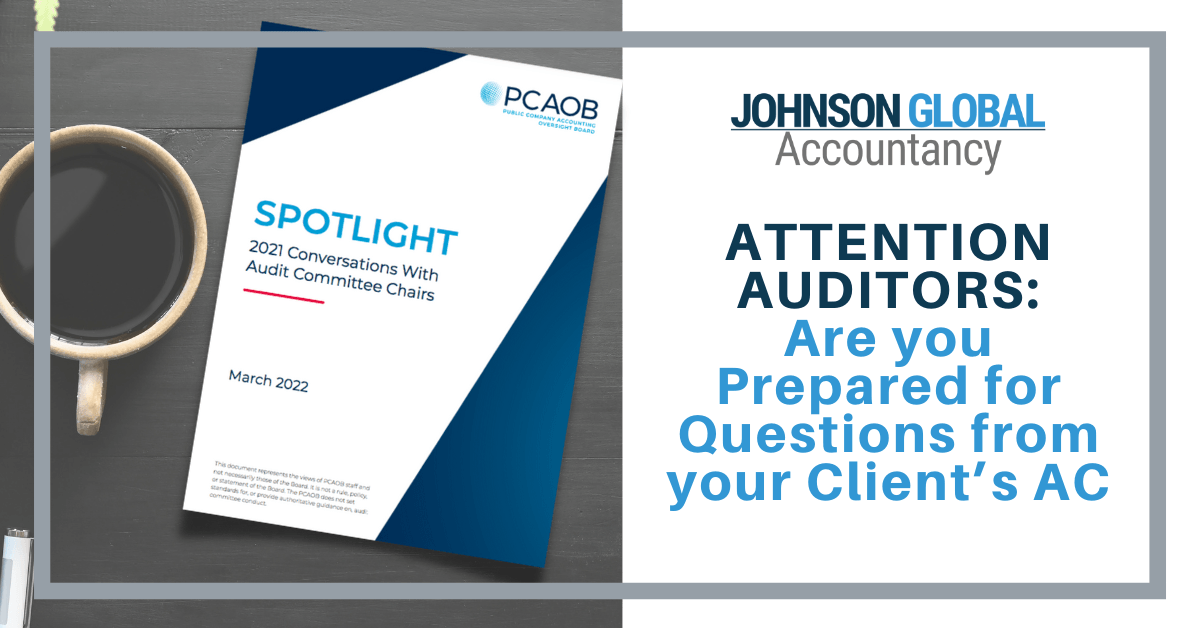
As part of its mission to oversee the audits of public companies, the PCAOB has invited audit committee chairs of public companies to hold discussions with its inspectors. This initiative to connect directly to audit committees started several years ago and continues today. As the PCAOB released its latest Spotlight 2021 Conversations With Audit Committee Chairs, we thought it was important to share some of the interesting observations where we see opportunity for the firms to improve dialogue with audit committee chairs (“AC Chairs”):
49% of AC Chairs did not participate in a PCAOB interview
While there was not specific data shared in terms of the size of those audits, if they were inspected annually or triennially, or what the ratio between US based issuers and international issuers, it is clear this was a huge missed opportunity for Audit Committees, especially if these AC Chairs were from clients of smaller firms! There are very few forums for audit committees to influence the regulator’s focus with its inspections and development of auditing standards, so we strongly recommend that AC Chairs take advantage of these one-on-one interviews with the PCAOB inspectors.
Many Haven’t Read the Report
Approximately 30% of the AC Chairs interviewed admitted that they neither reviewed the firm’s PCAOB inspection report independently nor discussed these reports with their auditors. This is a sizeable percentage which does not reflect well on the audit committee professionals who are meant to be overseeing governance of management and evaluating the quality of its auditors.
Lack of Focus on Controls
Only about a dozen out of 244 AC Chairs who were interviewed said they spent significant time with their auditors discussing matters related to controls. It’s unclear why only a dozen AC Chairs indicated that they discussed controls seeing that there must be scores more AC Chairs over public companies for whom auditors are required to opine on internal controls. Hopefully this result does not mean AC Chairs are uninformed or disengaged about their auditor’s evaluation of the quality of the company’s financial reporting.
High-level Understanding of QC Only
We also noticed the PCAOB acknowledged that during its discussions with AC Chairs, when asked to share their thoughts on their audit firm’s Quality Control (QC) system, the main point raised was that audit firms were doing a satisfactory job with QC. In addition, several AC Chairs made this statement with the caveat that they could only provide high-level impressions regarding this specific topic. This whole question about the quality of an audit firm’s QC system is a concept which is hard for any line-partner to discuss with audit committees in specific detail as they are not in the details of their audit firms QC processes (i.e. the audit partners can perhaps speak to their understanding of the audit firm’s the process of ensuring auditors independence, but they would be unable to articulate how effective these controls are). However, over the next couple of years (once the PCAOB updates its own QC standards to align with the global changes to quality management standards), audit committees will have access to audit firm evaluations of the QC systems.
Shared Concern on Cyber Security
AC Chairs also shared their concern about the risk of hacking of technology systems at both public companies and audit firms. One AC Chair emphasized that a ransomware or similar attack affecting the company’s data would have effect on the engagement team’s ability to perform procedures.
What are the opportunities for both Auditors and AC Chairs
Although AS 1301, Communications with Audit Committees, lays out required communications with Audit Committees, there are number of opportunities for auditors to improve the quality of its interactions with audit committees:
- Use the Spotlight as a Conversation Starter
We recommend that auditors enhance their dialogue with AC Chairs using the Spotlight as a conversation starter. Most continue to use the same communications year after year, so in order to demonstrate your value to the audit process, consider building into your discussions the items described in the Spotlight. This will enable you to keep the audit committee abreast of recent financial reporting developments and prove your value to those that re-engage you as auditor each year. AC Chairs appreciate the auditor’s ability to focus and prioritize their communications, including bringing key issues to the forefront and holding “deep dives” or educational sessions on noteworthy or emerging topics. In order to ensure success of the AC meetings, auditors should have a thorough meeting agenda, conduct quarterly calls ahead of earnings releases, provide meeting materials in advance, and hold pre-meetings to preview the formal discussion.
- Encourage the AC Chair to Speak with the PCAOB
The auditor should strongly encourage the AC Chair to agree to the interview and speak openly and honestly with the PCAOB during inspections, when the auditor is asked to coordinate a meeting with the AC Chair. This is a perfect opportunity for AC Chairs to articulate topics and ideas that are of importance to them as they fulfil their governance responsibilities.
- Preparation is Key
Engagement partners should go into their AC discussions ready to talk about results of the PCAOB’s most recent inspection report as well as the results of inspections for which a final report has not yet been issued. These conversations should be frank and honest about how the engagement team ensured the same issue did not occur during their audit. Be prepared to discuss how the Firm is remediating deficiencies to enhance audit quality. Also, continue to ask AC Chairs their views, how they evaluate audit quality beyond just timeliness and fees.
- Have a Cybersecurity Plan and Discuss it
Cybersecurity continues to grow in importance against which public companies need to contend. As a result, in March 2022, the SEC announced that it had proposed amendments to its rules to both enhance and standardize disclosures by public companies of their considerations around cybersecurity risk management, governance of cybersecurity, and reporting of cybersecurity incidents. Many public companies are already reporting some aspects of cybersecurity breaches, but the lack of SEC rules in this area does not ensure consistency and completeness of cybersecurity considerations across public companies. Accordingly, auditors should expect AC Chairs asking more robust questions around how effective the auditor believes management is in protecting the issuer against cybersecurity breaches and how the auditor has designed it's tests to identify risks related to cyber-attacks.
It is becoming even more important to discuss cybersecurity risks at audit clients and the severity of how any attacks may affect the operations and financial reporting process, including generating, processing, analyzing, and storing information needed to produce timely reports, external and internal. We definitely see an opportunity for auditors to start conversation with the AC Chairs about the nature and potential effect of cybersecurity on IT systems. The firms should inform the AC Chairs about how the firms respond to the risks of cyberattacks within their respective IT systems, including protection of confidential client information.
Other points which auditors should be ready to discuss with Audit Committees include:
- Technology and AI Use in Audit Procedures
There are many ways that technology and software can be used as part of the audit – assisting auditors through the use of AI in analytical reviews; testing of individual transactions; identification of unusual / unexpected transactions that may be indicative of fraud and /or error, etc. Auditors should be explaining to audit committees how they are using technology and software in performance of their audit.
- Confronting Resource Constraints
How the auditor is dealing with the resource constraints brought on by the pandemic and ‘great resignation’. Audit committees will want to be assured that the audit team members exhibit the appropriate industry and technical knowledge to be able to perform a good quality audit.
- Communication on Delays
Keeping audit committees abreast of unexpected delays through early and often communications. The last thing an audit committee wants to experience is a delayed audit because of an issue that was known about for some time but was communicated to them late in the audit.
In conclusion, audit committees are an important cog in the goal of improving audit quality. Each of the items above present excellent ice breaking talking points for audit firms to enhance communications with audit committees. After all, most audit committees are receptive to comments raised by the auditors and will be ready to help the auditors in performing their procedures in order to be able to provide a quality audit.
Farkhod Ikramov, JGA Director, has over 25 years of public accounting and audit regulation experience. Most recently, Farkhod held a ten-year tenure as a PCAOB inspector. Throughout his experience there, he inspected a variety of industries, focusing the last four years on financial services, insurance and mining. His experience positions him as a passionate and practical advisor to public accounting firms, assisting leadership in the implementation of the right controls, policies and practices throughout the organization.
Geoff Dingle, JGA Managing Director, works with PCAOB-registered accounting firms helping them identify, develop, and implement opportunities to improve audit quality. With over 20 years of public accounting experience, he spent nearly half of his career at the PCAOB where he conducted inspections of audits and quality control. Geoff has extensive experience in audits of ICFR and firms’ systems of quality controls. Prior to the PCAOB, he worked on audits in various industries at Deloitte in Atlanta and Durban (South Africa).

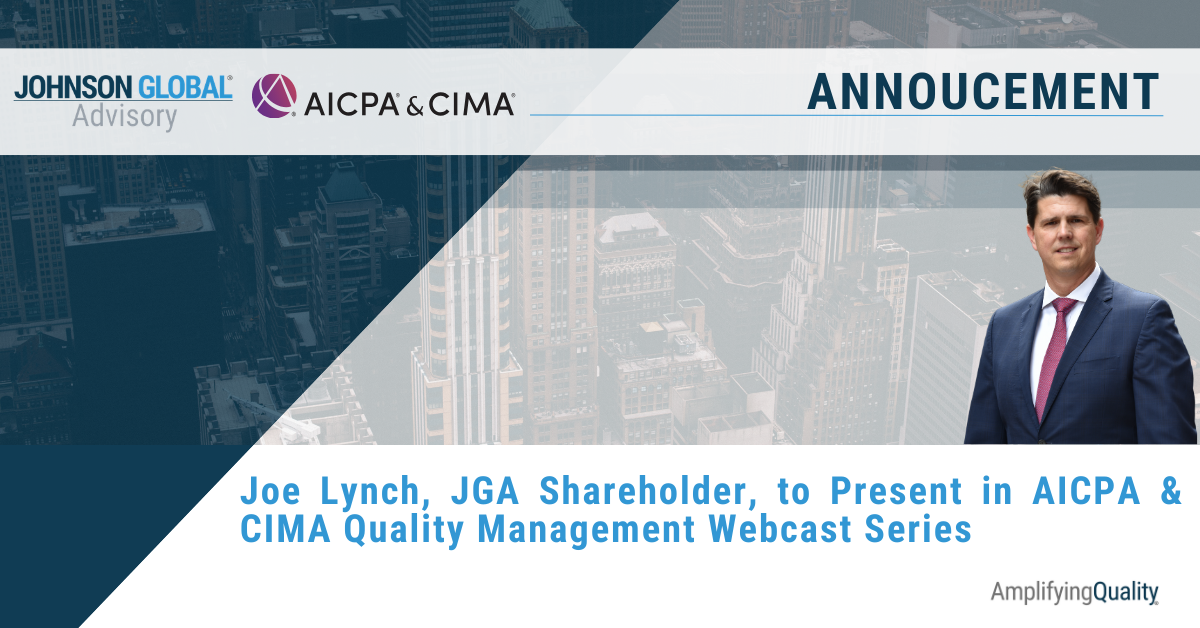

Joe Lynch, JGA Shareholder, to Provide Insights on Changes to Engagement Quality Review Requirements



